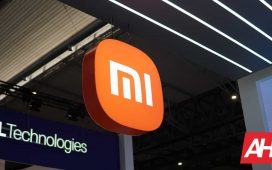Qualcomm is reportedly reconsidering its interest in acquiring Intel Corporation due to concerns over regulatory and logistical hurdles. The discussions, initially fueled by Intel’s financial struggles and declining market position, have stalled.
Qualcomm reviews Intel acquisition possibilities
Bloomberg reported Monday that Qualcomm’s earlier enthusiasm for the deal has diminished. The complexities surrounding such a large-scale acquisition and potential antitrust scrutiny are significant deterrents. Reports earlier this year hinted at Qualcomm’s interest in Intel, particularly after Intel’s market valuation fell amidst declining revenue and increased competition.
The deal, had it materialized, would have ranked among the most significant mergers in tech history. However, the likelihood of intense regulatory challenges across multiple jurisdictions has tempered Qualcomm’s ambitions.
The U.S. government’s decision to reduce Intel’s funding under the CHIPS Act added another layer of complexity to the situation. The grant, initially set at $8.5 billion, has been scaled back to under $8 billion. The cut follows Intel’s delay in launching its Ohio chip facility, now projected for completion by the end of the decade instead of the previously announced 2025 timeline.
The development highlights Intel’s struggles to maintain its position in a competitive semiconductor market dominated by companies like NVIDIA and TSMC. Intel recently reported a record quarterly loss and warned of further financial challenges.
Qualcomm focuses on strategic alternatives
As Qualcomm reconsiders its interest in Intel, the company is expected to focus on other strategic investments to bolster its market position. Qualcomm has been a significant player in the semiconductor industry, especially in mobile technologies, and any potential acquisition of Intel would have marked a shift toward expanding its capabilities in artificial intelligence and advanced manufacturing.
While the company remains cautious about the deal, analysts note the potential long-term benefits of acquiring Intel’s resources, including its expertise in advanced chip fabrication. However, the financial and regulatory risks may outweigh the rewards, leading Qualcomm to explore less complex opportunities.
Intel faces mounting pressure to adapt to a rapidly changing market. The company’s delay in capitalizing on the artificial intelligence boom has left it trailing competitors. The company’s ability to recover hinges on aggressive restructuring and innovative product development. Recent reports suggest that Apple and Samsung are considering purchasing Intel.









